Banana peels can be thrown in nature, blue skies always mean good weather, and sweating is good because it means you’re exercising. You aren’t alone in thinking this; we also made these mistakes in the past!
Over the years, we’ve learned a thing or two about venturing in the wild, and in the process, we’ve assembled a guide on how to make your time out in nature smoother. The principles gathered here can be applied anywhere from the backcountry to local parks, and for any recreational activity.
Ready to know more on how to responsibly enjoy an outdoor experience while cracking a laugh? Keep scrolling!
Minimise your impact
The invisible adventurer
Imagine the forensic police coming to the nature spot you’ve just visited. They are looking for proof that you’ve been there, but you’re the invisible adventurer! You’re like a ghost, and they can’t find any sign of you there. This is no easy task, but we have some tricks and tips that can turn you invisible and help you leave no trace.
The obvious
The best way to leave no trace while in nature is so no other person, present or future, know you did it. In other words, pack everything that you brought in and bring it out with you. And in the meantime, grab that plastic bottle that someone forgot and looks so ugly next to the beautiful tree. We don’t want to leave the place as we found it, we want to leave it better!
To not forget your favourite jumper or the cap your girlfriend gave you (she’ll kill you if you lose it!), we recommend keeping all the stuff together.
If you’re short of ideas on how to make cleaning the outdoors more entertaining, plogging or joining a plastic cleanup are just some fun ways to do so. You don’t need to collect two tones of garbage to help look after nature; every small deed counts!
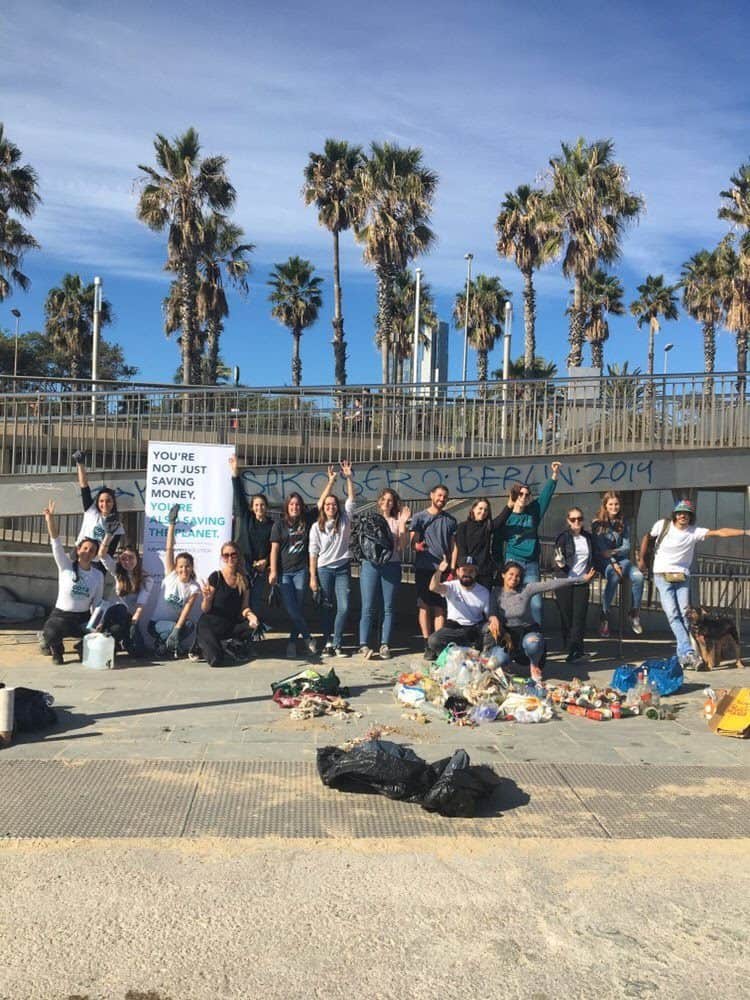
The not-so-obvious
💩 Sh*t
It’s obvious that a Coca-Cola can damages nature if left there, but there are other not-so-obvious things than can be as much a threat as the obvious litter. It’s time to talk about poo!
Human waste can attract wildlife, contaminate water sources and spread diseases. If someone poops next to a river and you drink from the same water downstream, you can imagine what you’re drinking, right? 🤮
To avoid unpleasant situations, use the bathroom before you hit the outdoors. However, sometimes nature calls when you’re out in the woods and you gotta answer! When peeing and pooping outdoors, make sure to do it at least 60 m away from any water source, trail, and campsite. If going for a number 2, you should always dig a hole at least 0.15 m deep into the ground. You can use a stick to do so. Bury your poo there and cover it with rock and dirt.
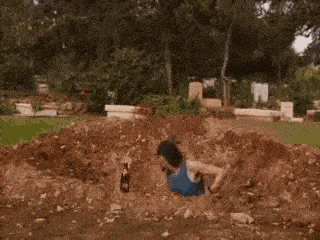
Regarding the toilet paper, remember the obvious: pack it out! A better option than toilet paper is to use a pee rag. After using it, rinse it in water to make it clean, and keep enjoying your adventure!
If you want to dive deeper into the world of eco-friendly outdoor defecation, we can’t recommend enough the book How to shit in the woods and the article “How to poop anywhere outside“.
🧴 Chemicals
You know the feeling you have when you enter a kids’ swimming pool? You’re afraid to open your mouth, even if it’s just for a tiny second because the water is full of chemicals. Well, that’s how fish feel when we swim in lakes or the sea covered in sunscreen. Sunscreens, bug sprays, and lotions can wash off in rivers, lakes, and oceans when we swim, damaging plants and animals, especially coral reefs. But it’s not only the animals you should care about. The chemicals on these products can also damage your skin.
Before rushing into spraying all your body with sunscreen, use clothing as a first defence. Broad-brim hats, sunglasses, and full-coverage swimsuits are some options. Also, many outdoor brands now make breathable pants and shirts to keep you cool and protected from the sun.
When buying sunscreen, choose an eco-friendly one. They are often advertised as “reef-safe” and typically use minerals (zinc oxide and titanium dioxide) instead of chemicals to protect skin from the sun.
Same for the bug sprays, choose a natural insect repellant. These use ingredients you can pronounce and recognise, like rosemary, mineral oil, baking soda, citronella, or peppermint.
When it comes to soap, avoid using it at all costs. If you need to wash your hands, carry a hand sanitiser that doesn’t require rinsing. This way, you minimise the number of toxins put into the environment.
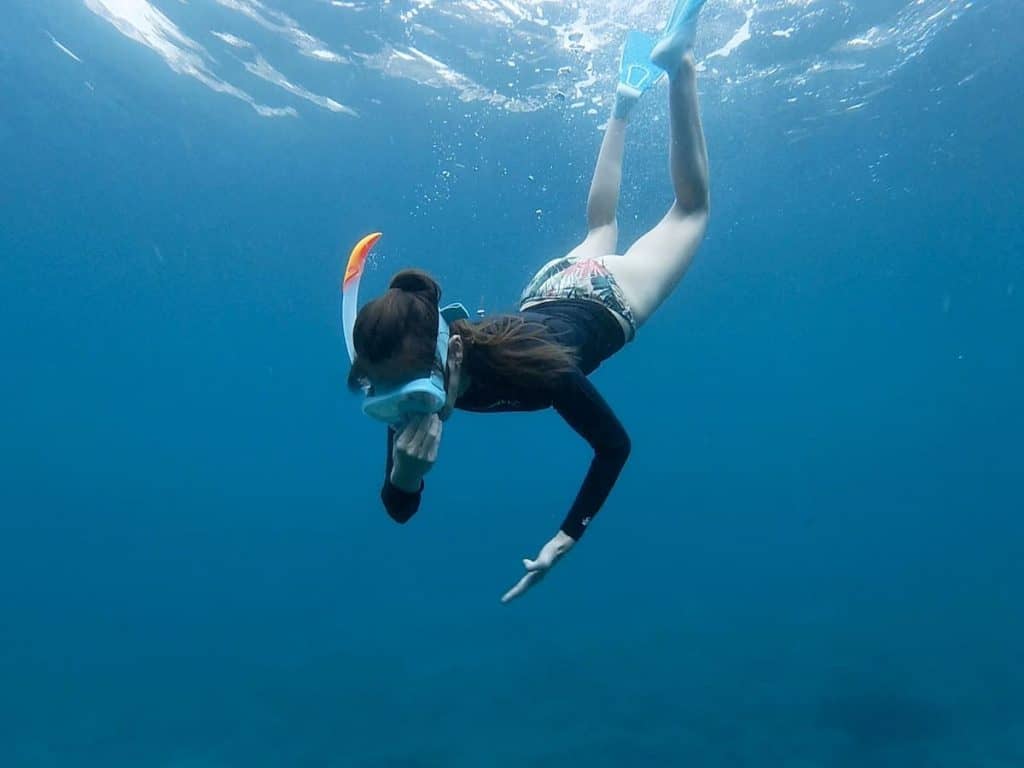
The confusing
🍌 Organic waste
Yes, banana peels, nut skins, apple cores, and bread crumbs are biodegradable. But if, like us, you imagine that the banana peel you throw in nature will make for a delicious dessert for a cute little deer that only eats grass, you’re wrong.
What actually happens is that the deer can have a stomach ache after trying new food, and, with time, the deer can become dependent on humans for food. This can lead to overcrowding or begging, and you can even end up in a conflict when that adorable deer notices your trail mix and won’t take no for an answer.
Also, banana peels don’t decompose in weeks. It can take up to two years for a banana peel to completely decompose! Sure, one scrap won’t cause the entire ecosystem to collapse, but one thing leads to another and then we’re all afraid of venturing outdoors because we can get into a fight with a deer.
Takeaway: Pack food scraps. After enjoying your delicious snacks under the sun, inspect the area for trash or spilt foods. Same when you’re camping. Pack out all trash and leftover food and dispose of it later or use it to cook a delicious recipe (did you know that you can make crispy vegan beacon with banana peels?).

🥾 Non-native species
When venturing outdoors in a determinate region, some species (especially seedlings) get stuck in your boots, bike tires, or other gear. Then, you use these gear in another different ecosystem and boom! Suddenly, you’ve introduced a non-native species there, and that can cause trouble to the local fauna and flora.
Whenever you’re heading outdoors in an ecosystem that’s different from your regular one, clean your boot soles, kayak hulls and bike tires. There is no need to clean anything if you’re just going for a hike every weekend around your house. But, if you come to Catalonia (or a different country from the one you live), do please clean your boots!
Moving around nature
Have you ever wondered why there are paths in parks and mountains? We used to think that nature was just nature, so what was the point of staying on the trail? It turns out that trails do have a function, and it’s an important one.
They are built to prevent erosion in nature, avoid walking over wildlife, and protect yourself.
When cycling or walking off the trail, you are compacting the soil. This makes it difficult for plants to grow and changes how water flows when it rains. All in all, it messes the landscape a bit. Also, by stepping into plants, you could be destroying an ant’s dinner or a squirrel’s next meal.
Trails also exist for safety. If you injure yourself off the trail, it is more challenging to find and assist you than if you’re having difficulty on a marked and known trail.
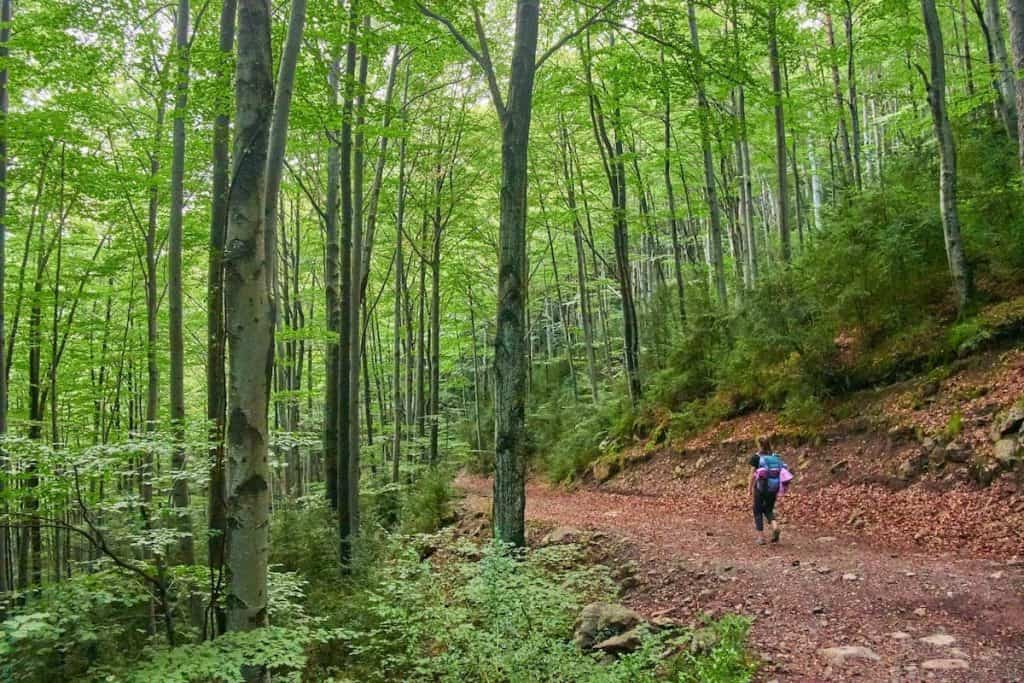
When moving around nature, it’s also smart to think about the trace you leave to get to the place (a.k.a. carbon footprint). The top option to reduce it is to use public transport (whenever possible, of course!). Lots of outdoor opportunities are just a short metro ride away. You can use trains, ferries and coaches for longer distances and get on the gondolas to access the ski slopes. Also, ditch the car and enjoy a bike ride whenever you have to chance!

Be a wildlife warrior
🐜 Bugs are friends
We don’t blame you for thinking “Who let these freaking bugs out?” when you come across some ants, mosquitos, or flies in the outdoors. They sometimes can indeed be annoying. But the truth is that without bugs, we might all be dead. And we aren’t exaggerating!
The fruits and veggies we have for lunch? We wouldn’t eat them if it wasn’t for the pollinating services of bugs. Honey, beeswax, silk, and other valuable products wouldn’t be around either. Without insects, which are amazing decomposers, the amount of dead animals, plants, and rot all over the place would be terrible. Also, pest populations wouldn’t be under control.
Actually, a study says that bugs contribute more than $57 billion a year to the U.S. economy! Better to think twice before blithely swatting a fly or squashing an ant! Next time you see a bug, stop thinking of it as an annoying little critter that stings you or spoils your alfresco dinners, and see it as the invisible force that keeps the world running!
🦔 Keep wildlife wild
Squirrels, groundhogs, or baby deers are so cute that it can be tempting to touch them or get too close if you encounter them in the wild. What’s the harm in showing them a little love?
Actually, by touching the animals, you may leave your scent on the animal, which could draw predators to it. It’s like if someone covers you in honey and leaves you in an area full of bees.
If you encounter an animal or even a nest, watch it or take a photo of it from a distance, but never touch it or mess with it in any way.
Also, most food is so delicious that you might as well eat it yourself and not give it to the wild animals. Human food is bad for their health, can infect them with diseases, and change their natural behaviour. So, never feed wildlife.
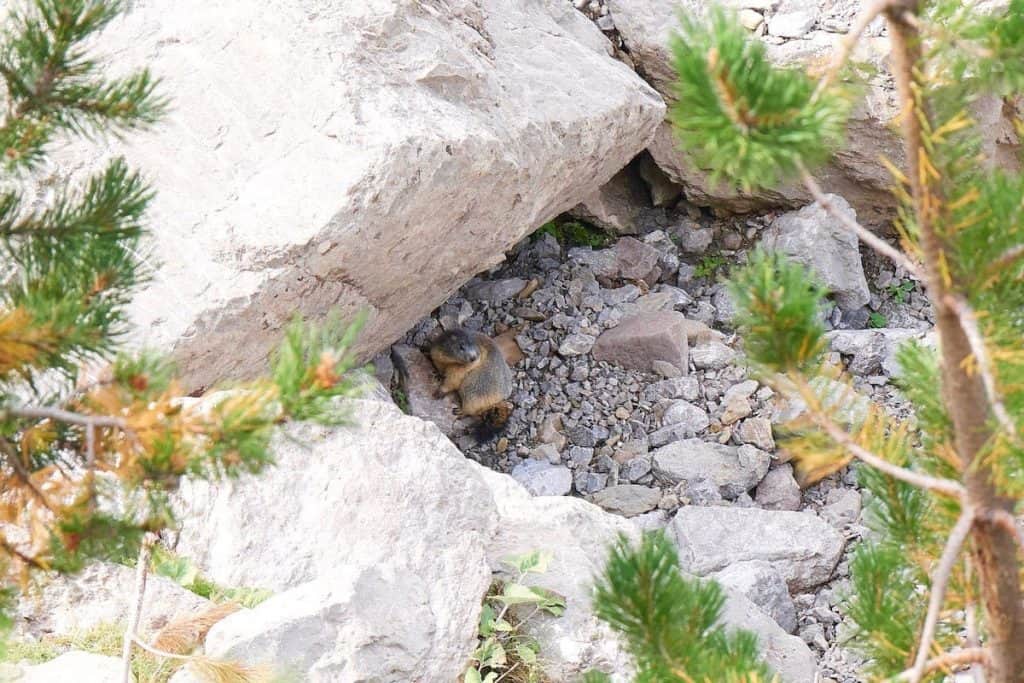
🎧 Opt for a silent disco
Music can be a great companion when you head outdoors, especially alone. We love, for example, listening to music when we’re inline skating in Barcelona’s waterfront promenade. It’s like adding a soundtrack to life! But we understand not everyone likes our music, especially when we choose to listen to classic Spanish songs 😆
To avoid any metal or hardcore hip hop fan chasing us to destroy our phone, we opt for using headphones. Whenever you’re in the mood for some music, that’s the best option.
Loud music not only can bother other people, but it also makes animals’ lives harder. Animals produce calls to socialise and warn each other. If they can’t hear these calls, they might miss a signal warning of a predator or a danger nearby. Animals also use signals to attract mates, so by turning the speakers on, you might be stopping a bird from finding the love of its life!
And what if you’re doing a group picnic and fancy some background music? Of course, you won’t be all listening to your headphones and isolating. The trick then is to keep it as low as possible.
🍄 Leave the landscape colourful
From daisies to daffodils, wildflowers make beautiful bouquets to surprise our mums or brighten up our living room. But as you can’t come across a lynx in nature, adopt it as a pet, and bring it home, you can’t pick protected or endangered plant species. If you are unfamiliar with those species, it’s better to leave the plants in the wild to grow. Also, if you’re in a national park or a conservation area, it’s good to know that they often have laws protecting against wildflower picking.
Besides wildflowers, another thing that can be tempting to pick from nature is mushrooms. Foraging mushrooms is so fun! And also they are delicious. But, before taking them from the soil, take a moment to inform yourself. Mushroom picking can be subject to local regulations, so getting things straight before collecting anything can save you some trouble.
If you want to introduce yourself to the interesting world of foraging, be it mushrooms or plants, grab a book, do a course or join an expert to learn about it. We love following Foraged by Fern, The Olive Trees and The Moon, and Rob Greenfield.
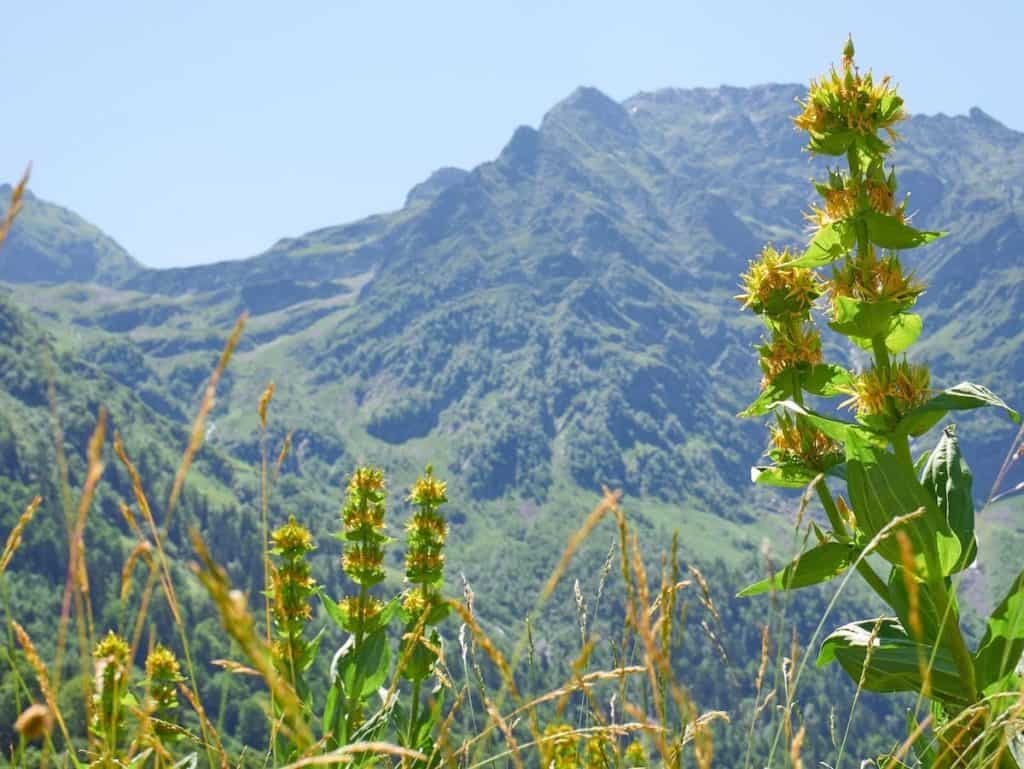
📸 Protect wildlife’s eyes
Do you recall how annoying it was when you were sleeping in your dark room after a night of partying hard and your parents suddenly entered and pulled the blinders up?
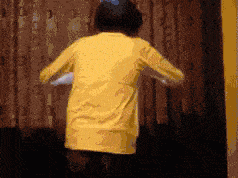
That’s more or less how nocturnal animals can feel when we use flash photography at night.
When it comes to us, nothing happens after the light enters the room. Our eyesight is the same even after having rgone from total darkness to a strong brightness. But for nocturnal animals, whose eyes are very sensitive, the consequences are severe. Bright lights can damage their eyes, leaving them vulnerable to predators.
Bright lights can also confuse animals and mess up their natural rhythms. We’re used to having artificial light at night, but that’s not the case in nature. Often, animals rely on environmental light (such as sunlight or moonlight) to guide their movement and behaviours.
If you’re wearing a headlamp or a torch and spot an animal, never point at it. Also, keep your camera flash off when there’s an animal in sight.
This also applies underwater. If you are doing a night dive, keep the same principles in mind.
Be a top-notch camper
The thousands of photos of tents facing jaw-dropping landscapes on Instagram may make you want to go on a camping adventure right now. But before pitching your tent, check if wild camping is allowed where you’re going. It varies from region to region, so it’s always a good idea to inform yourself of local regulations.
If wild camping is allowed, pitch the tent on a durable surface, such as rocks, gravel, dry grasses, snow, or an established trail or campsite.
We all love to hang the hammock and chill when given the opportunity. Just take care not to damage the trees when securing the hammock, the tent, or the clotheslines.
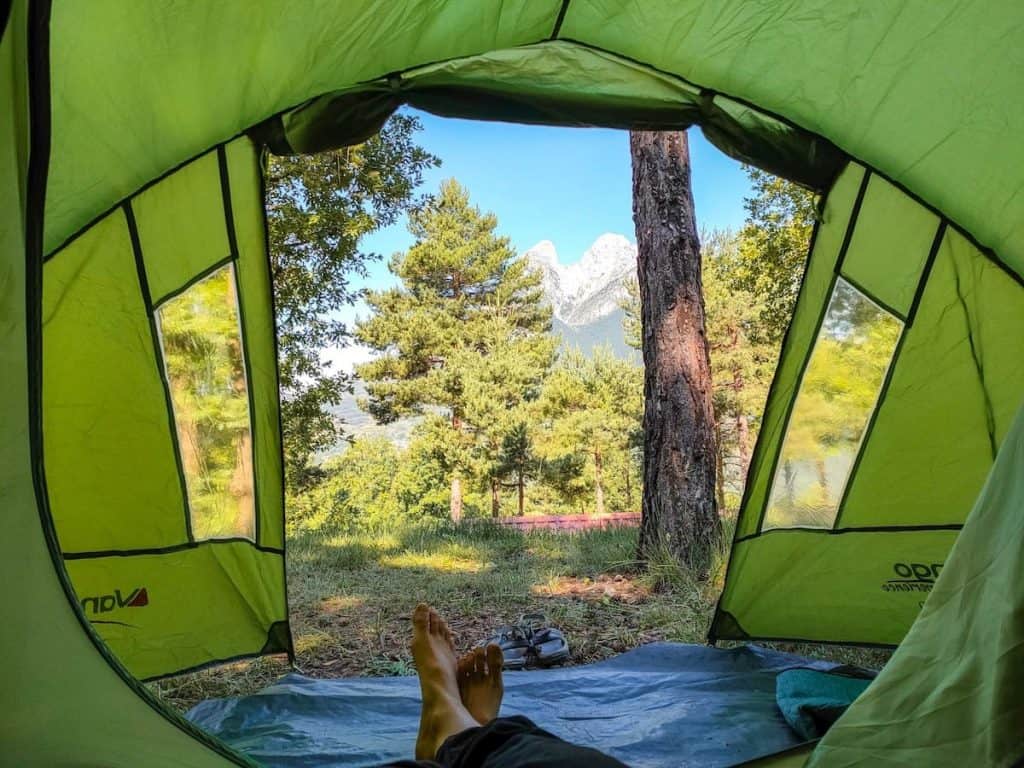
Keep the fire under control
It’s nighttime on your first camping trip, and you’re thinking about how cosy it would be to light a fire and toast some marshmallows 🤤. However, you can’t just grab a lighter and start burning sticks!
If the idea of lighting a fire crosses your mind, always check first fire restrictions and regulations. There are designed areas where a fire is allowed, typically equipped with metal rings or burn pits.
Once you’re sure you can light a fire, it’s time to find something to burn. As a rule of thumb, only use sticks from the ground that can be broken by hand.
Now, the sticks are burning, and you have a cosy fire to keep you warm. Can you just go for a night hike? Never! We don’t want to leave the fire unattended and end up calling the firefighters at 12 am. A better idea is to always attend to the fire and keep it small.
When it’s time to go to sleep, or you’re fed up with watching the flames, burn all wood and coals to ash, put out the campfire completely, and scatter the cool ashes widely.
For the smokers out there, you’re holding a weapon in your hands! If a cigarette butt touches the soil, the consequences can be awful. It’s better to avoid playing with fire and pack the butts.
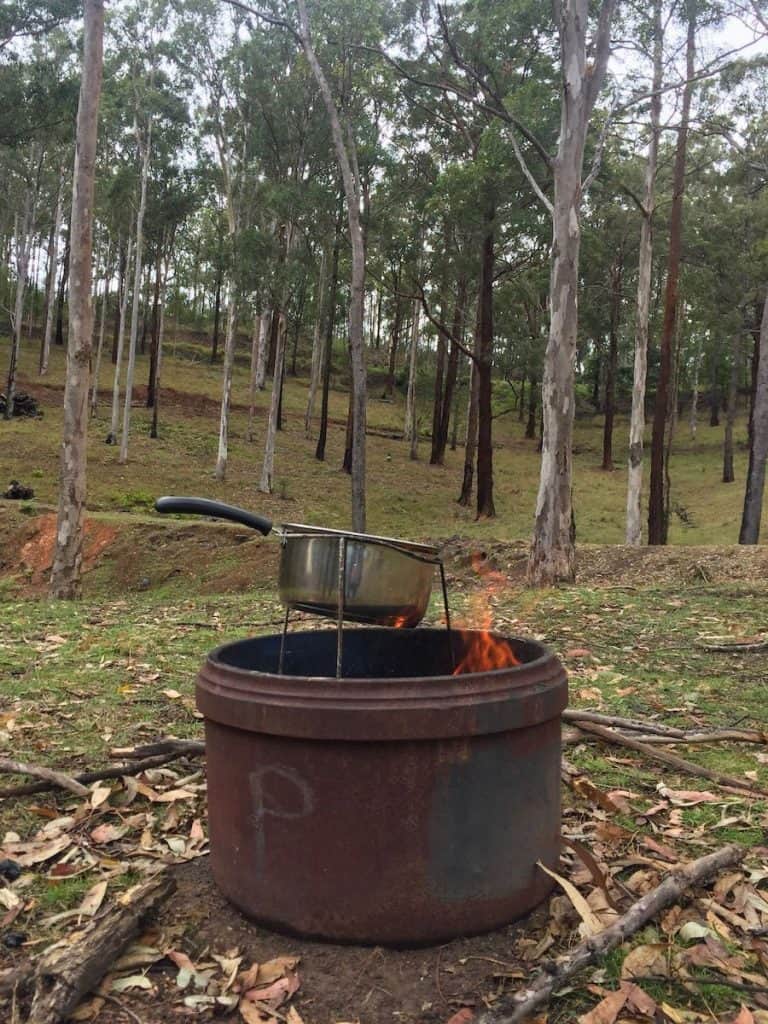
Maximise your safety
Fashion, but make it safe
🧤 Wear comfortable clothing
Obviously, you’re more than free to wear whatever the hell you want, just don’t make your clothing work against you. The most important thing is that your clothes are comfortable.
Clothes made of breathable fabrics that wick sweat away from your body, such as wool, fleece, polyester, nylon, or polypropylene, are the best. Cotton shirts and jeans are super cool and useful if you don’t need to make a considerable effort and sweat. But if not, it’s better to leave them in the wardrobe. Once damp, those fabrics stay damp, sucking away body heat. They not only can ruin your experience and make you feel uncomfortable, but it also puts you at risk for hypothermia when it’s cold.
Talking about sweating, there’s a common mistake that we’ve made a lot of times: letting ourselves sweat. The moisture created on the skin when sweating siphons away warmth. Then, it’s easy to start shivering and be cold. Good news is that this situation is super easy to avoid! Start with fewer layers and a little chilled, so you won’t be overheating and need to shed clothing ten minutes after the start.
As necessary, it’s to add layers right when you stop. When you’re doing exercise, and you want to stop for a while to soak up the impressive views, put on an extra layer!
🥾 Wear the right footwear
Improper footwear has been many times the likely culprit behind rescue call-out. What you wear on your feet can literally save your life (or at least, save you some days of pain and blisters). If you go to a slippery place (river, canyon, etc.) or to the mountain, ditch the sneakers and grab a pair of shoes with grip, even in summer. There’re many sandals nowadays with grip, so the flip-flops can be saved for your next spa session!
Lastly, don’t forget to break in any new shoes before you head out outdoors. Wear them for short walks first. This will loosen them up, preventing discomfort and blisters. Your feet will thank you!
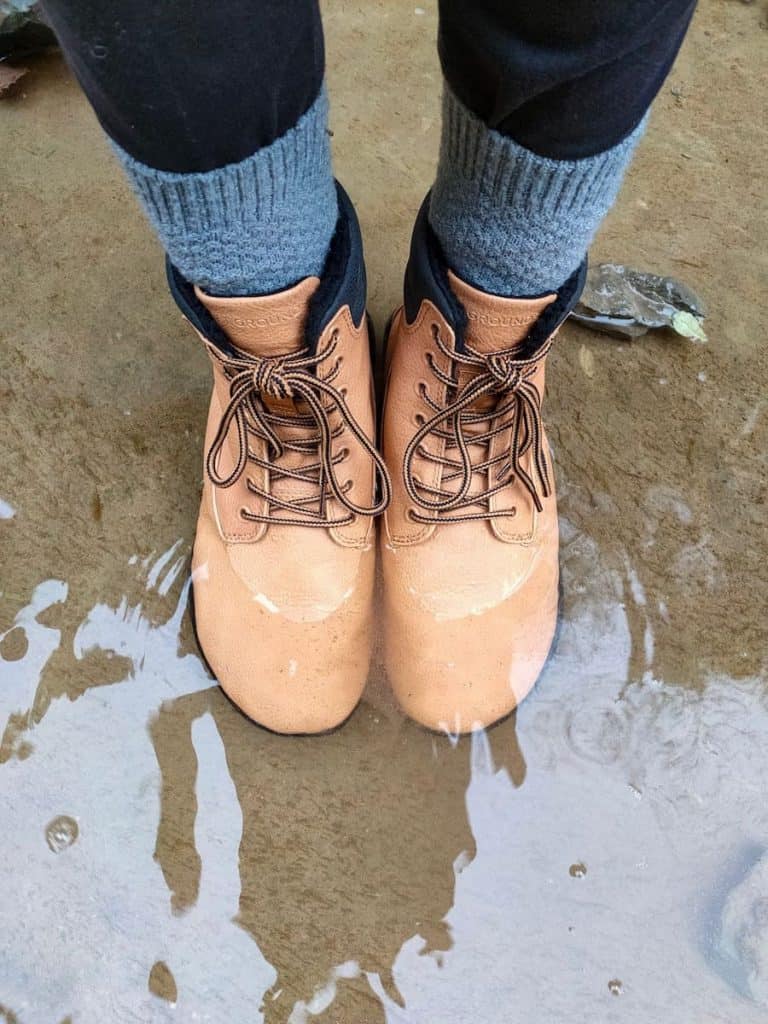
Turn your living room into a testing field
How exciting it is to get a piece of new gear! You unpack it, show it proudly to your flatmates/partner/family, and imagine all the epic things you will do together. Then, you store it until next week, when you’ll be going camping, and you’ll finally be able to use your brand new tent.
Fast forward one week, you’re happily backpacking with your mates. It’s a sunny and wonderful day, and you’re having a blast. Before dusk, you unpack your tent for the first time and start assembling it. But…where are the tent poles? You search like crazy, but the freaking poles are missing, so now you’re only left with a polyester fabric to sleep under. Oh, how nice it would have been to check this at home and not in the mountain!
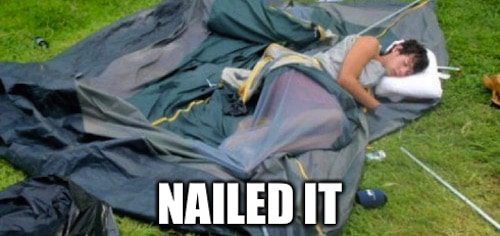
Probably, next time you receive some gear, you’ll get a nice drink of choice, take the gear out of the package, and make sure everything is there. You’ll even take time to learn how to use the gear and test everything at home at least once before venturing outside. It doesn’t matter if it’s setting up a tent, putting the crampons on, or inflating the paddleboard.
If learning on your own feels intimidating, sign up for a course where outdoor guides show you how to use all the stuff you need for a particular activity. Things can get messy quickly if you venture outdoors without the proper knowledge!
Say no when it feels too intimidating
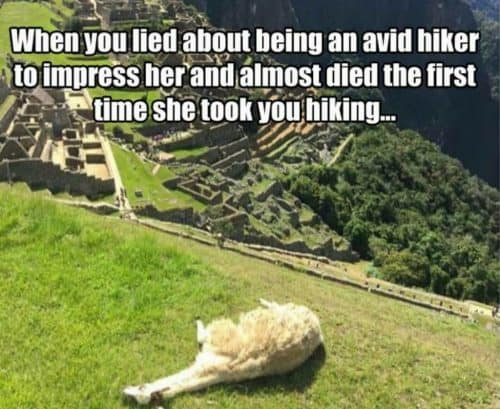
Sounds familiar?
It’s challenging to estimate how exhausting an activity can be. So it’s better to start with something that you feel comfortable with and avoid putting yourself in a situation you can’t handle.
In the outdoors, overestimating your abilities can turn a fun day into your worst nightmare. Being on top of a red slope and not knowing if you will make it down is not just a risk for yourself but also for the people skiing with you. Even for the rescue team if you end up injuring yourself. In the end, it ends up taking away all the fun.
And no, that doesn’t mean you can take on a new challenge! We are the first to jump in when the opportunity of a new adventure presents. It just means that you don’t go from the sofa to climbing a 3000 m peak.
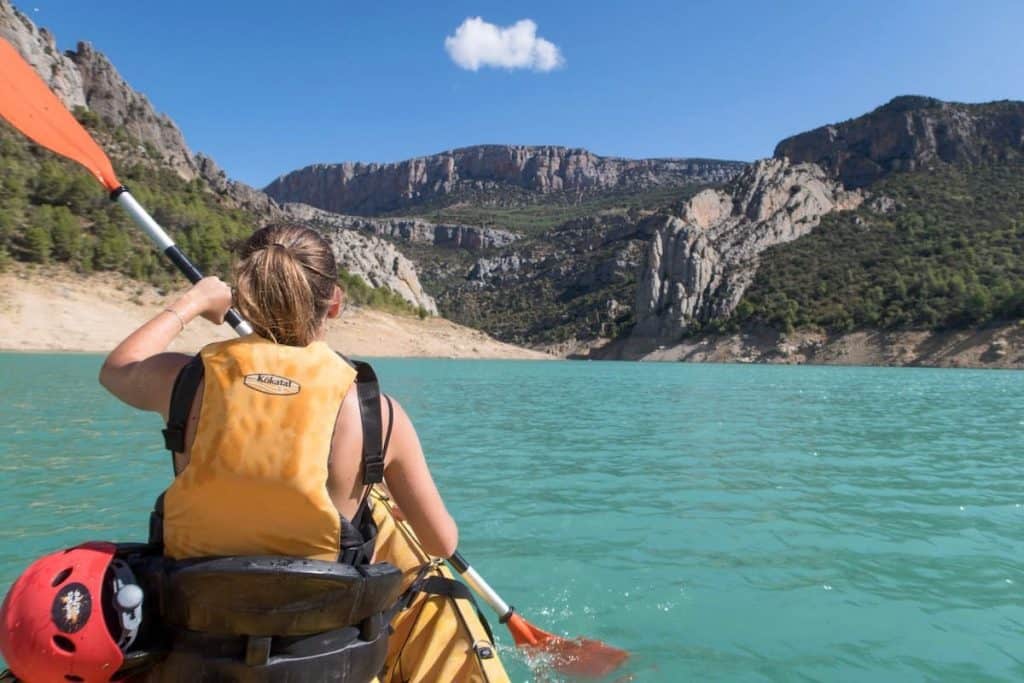
Plan it out
We believe that in the old times, pirates didn’t hunt treasures blindly. They drew several maps, studied the treasure’s position, went to steal food for the journey ahead, and prepared the weapons needed to survive in case of attack.
Be like a pirate. Plan in advance: know where you are going, how to get there, the gear your need, and how to flag down help if you find yourself lost. Proper planning helps you understand and follow local regulations, avoid unexpected situations, and make the experience more enjoyable.
If you find yourself more comfortable with an experienced professional, let a local guide you!
And never ever ignore the weather forecast! Looking through the window and seeing a clear sky doesn’t mean the weather is going to be good. What if it’s also super cold? Or the weather forecast predicts a big thunderstorm in two hours? Keep in mind that the weather can change easily (especially in the mountains) and be prepared for that.
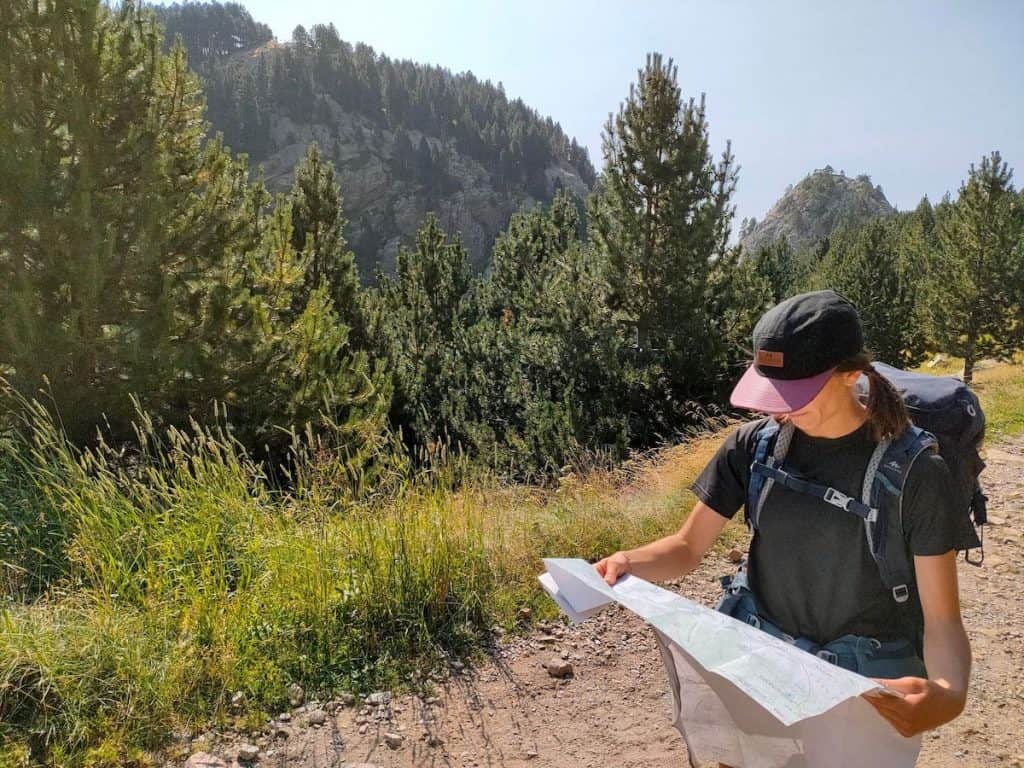
Bring enough fuel
Like our cars need fuel to run, our bodies need nutrients to move. And in the outdoors, grocery shops are scarce. To avoid craving a nutty bar and having the closest shop 20 km away, pack enough food to keep your energy levels up and enough water to stay hydrated. When it’s hot, you’ll want to pack extra water to replenish what you sweat out.
It goes without saying that packing water is not enough. Remember to drink it!
Which foods can keep your body on fire when you’re outdoors? Anything that is easy to digest and keeps your body energised. Think nuts, sandwiches, fruit, and energy bars. Salty foods are also a great option, as they replenish the salts you lose when you sweat.
Figuring out the type and amount of food you need on your outdoor adventures can take time. So, start experimenting with different snacks on shorter activities and build up from there. That way, you’ll know exactly what to pack when you head out on a big adventure!
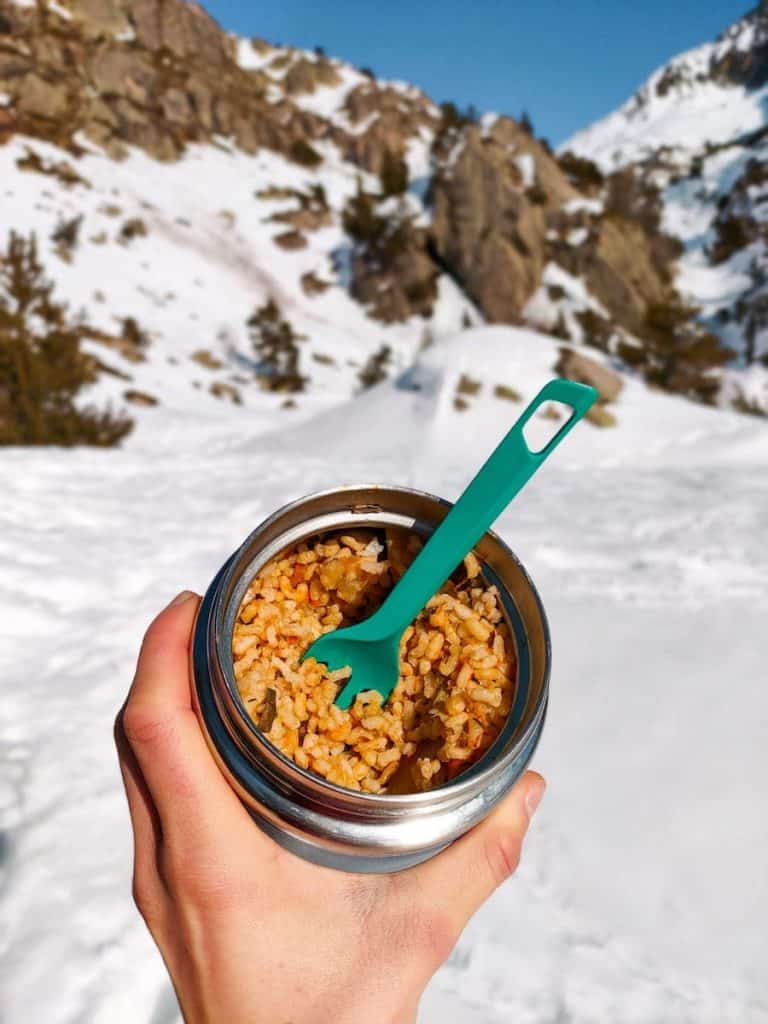
How to enjoy nature responsibly with your pet
Enjoying the outdoors together with your little furry friend is always fun, but keep in mind that some people and other animals are not so fond on dogs. Also, no one likes to step into a poo, so pick up after your dog and dispose of the waste bag in a bin.
To avoid any trouble, make sure your friend has all the needed vaccinations.
Why should you bother to do this?
It might seem that nothing happens if someone gets injured, bothers an animal, or litters a place. But the truth is that you’re not alone, and what matters is the sum of all the people that goes to a place.
Irresponsible behaviour in nature comes with its consequences. For example, in Catalonia, there are two caves that are like a miniature version of the antelope canyon. It’s an impressive and beautiful place. However, in 2019, the council decided to ban the entrance to the caves due to the increased number of visitors and the dangers this posed to such a fragile environment. As for now, the entry is still prohibited 😔
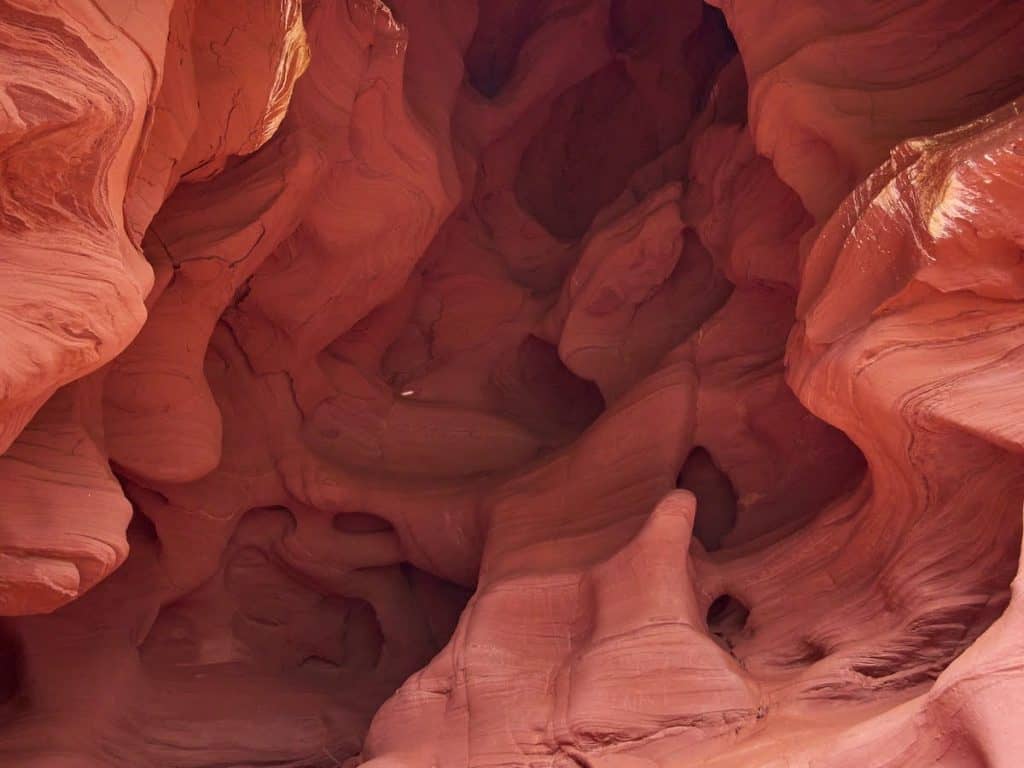
When it comes to responsibly enjoy nature, we would say common sense is our best ally. Imagine nature like your house. Would you like someone trashing it? Stealing your decorations? Or pointing a headlamp at your baby’s eyes?
Together we can make a positive atmosphere outdoors and have fun simply by following the tips above. Kindness, respect, a friendly gesture, and being considerate both to people and wildlife can go a long way. Have a happy time in your next outdoor adventure!

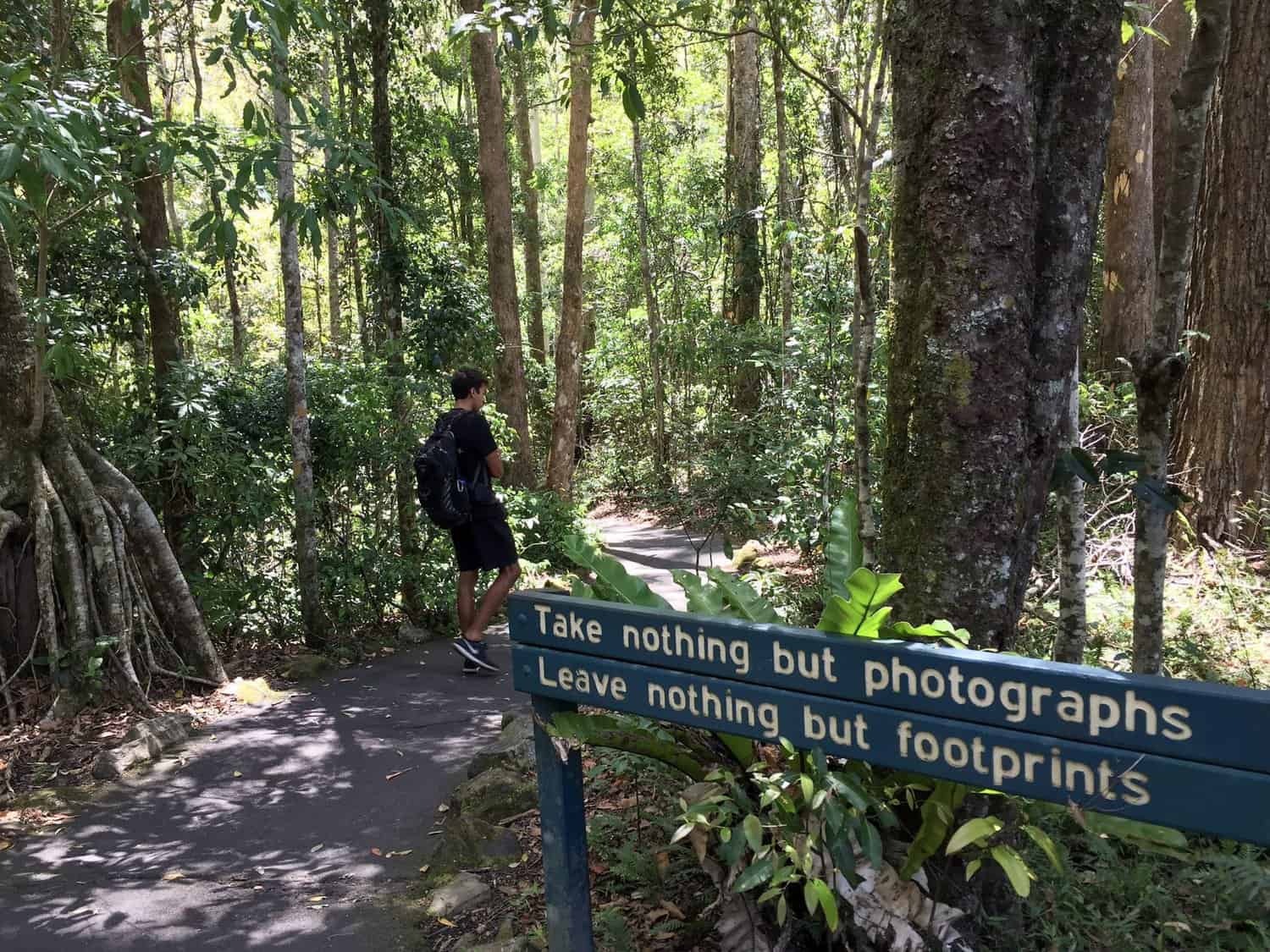
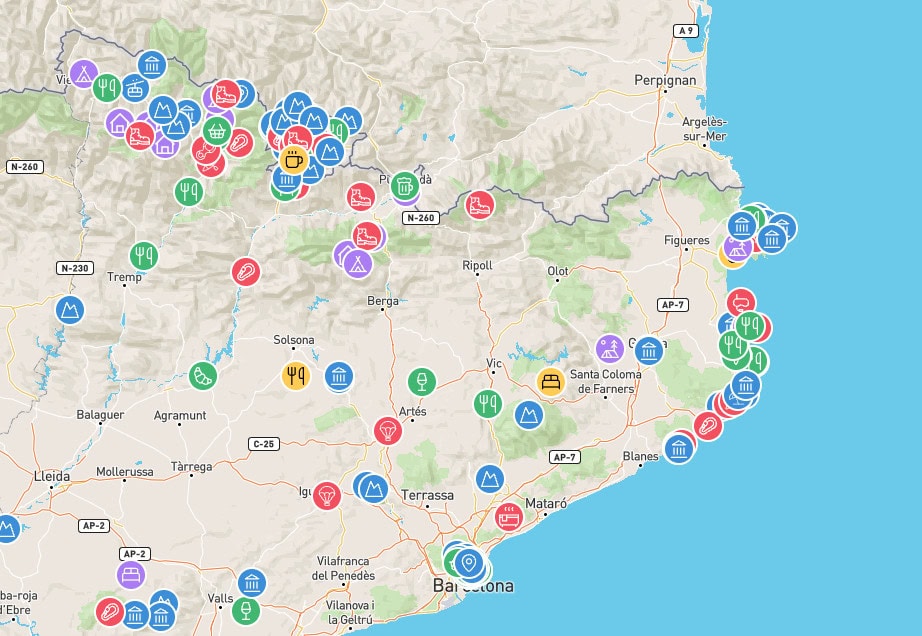
0 Comments